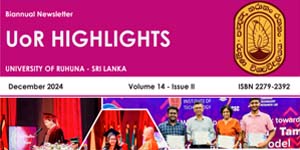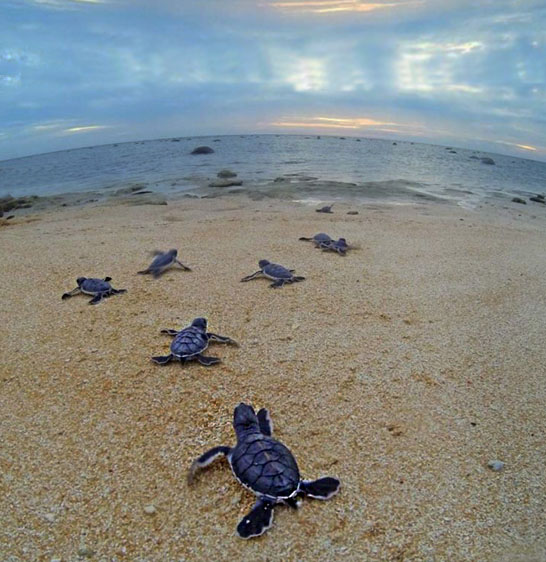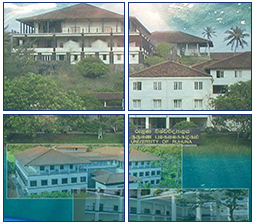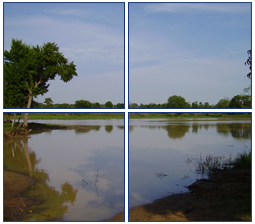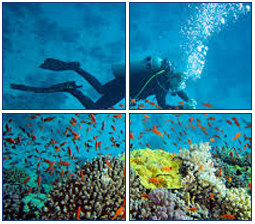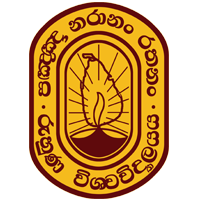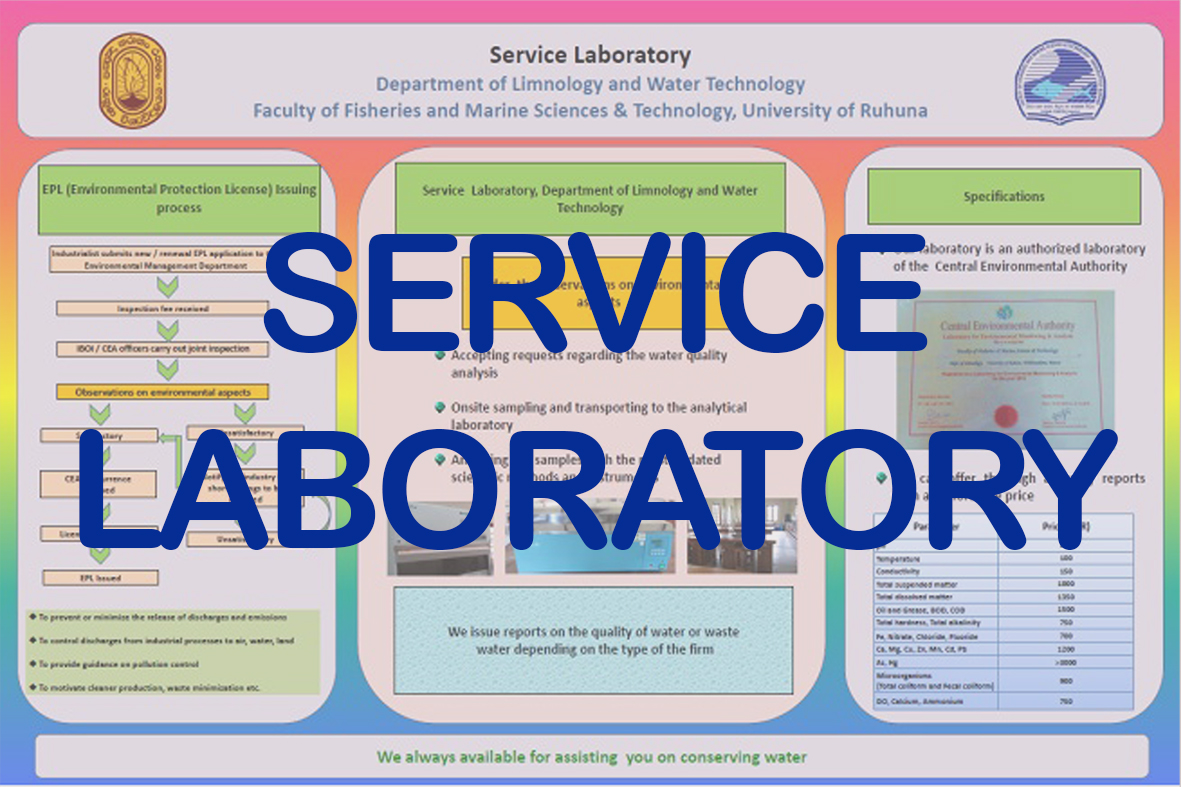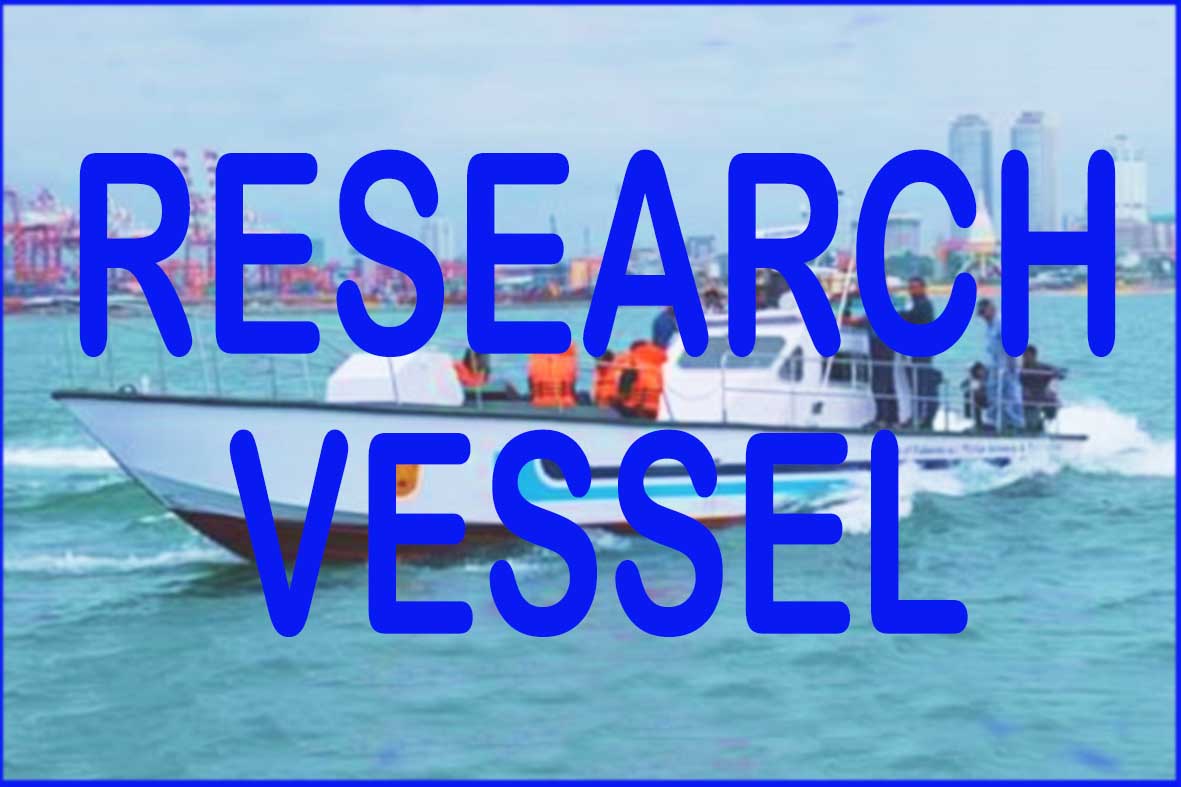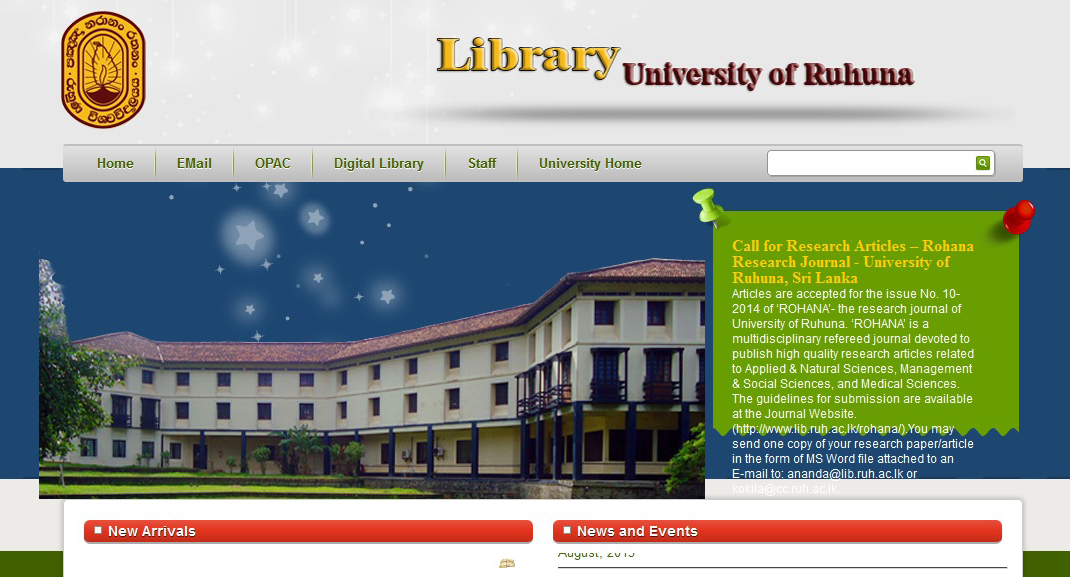The Faculty of Fisheries and Marine Sciences & Technology consists three academic departments, viz. Departments of Fisheries and Aquaculture, Department of Limnology and Water Technology & Department of Oceanography and Marine Geology. The Faculty offers Bachelor of Science Honours in Fisheries and Marine Sciences and Bachelor of Science Honours in Marine and Freshwater Sciences special degrees after successful completion of the four year program. Undergraduates, pursuing Bachelor of Science in Fisheries and Marine Sciences degree program will get the opportunity to specialize in Fisheries or Aquaculture. Undergraduates in the degree program of Marine and Freshwater Sciences get the opportunity to specialize in Oceanography and Marine Geology or Water Sciences and Technology.
OUR VISION
Vision of the Faculty is to be the center of excellence in Fisheries Science, Marine Science and Water Technology education and research in Sri Lanka.
OUR MISSION
Mission of the Faculty of Fisheries and Marine Sciences & Technology is to produce outstanding, internationally accredited graduates in the fields of Fisheries, Aquaculture, Limnology, Water Technology, Oceanography and Marine Geology.

GRADUATE PROFILE
Graduates of Faculty of Fisheries and Marine Sciences & Technology (FMST) are well equipped with Theoretical and Practical Knowledge to manage living and non-living resources in inland aquatic as well as marine environments, and possess attributes as depicted in the following chart.
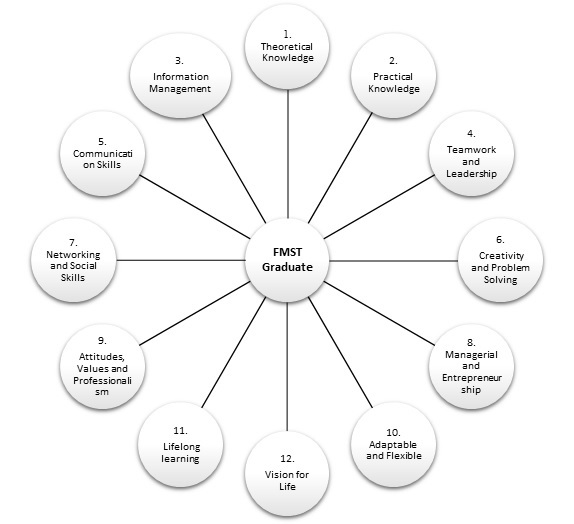
FMST Graduate
1. Theoretical Knowledge of FMST graduate is thorough and intact as the backbone supporting their role in aquatic, mineral and fishery resources management.
Graduates who followed Marine and Freshwater Sciences Degree essentially have the ability to explore and understand marine and freshwater systems,
utilize the living and non-living resources in those environments sustainably, and mitigate natural and anthropogenic hazards related to those
environments.
Graduates who followed Fisheries and Marine Sciences Degree essentially have the ability to explore and understand fishery
resources both marine and freshwater, manage those resources minimizing conflicts with community and other stakeholders, and develop and manage aquaculture
systems assuring food security of the people.
2. Practical Knowledge turns theory into application, and is obtained through hands-on experience on scientific methods for environmental management.
Graduates who followed Marine and Freshwater Sciences Degree develop skills to measure quality status of marine and freshwater systems as well as the
ground water; analyse the risks associated with the quality deterioration; apply drinking water and waste water treatment methods; manage pipe-borne water
and irrigation water distribution; manage watersheds considering hydrological regimes and land use patterns; assess environmental impacts of anthropogenic
activities; conserve aquatic ecosystems and biodiversity; and explore biological and mineral resources in the marine and freshwater systems.
Graduates who followed Fisheries and Marine Sciences Degree develop skills to assess fishery resources in both marine and freshwater systems;
manage those resources minimizing conflicts with community and other stakeholders; conserve aquatic ecosystems and biodiversity; analyze genetic resources
of aquatic biota; develop and manage different aquaculture systems; assess the quality of aquatic food products; develop post-harvest techniques for aquatic
food products; and develop value added products from the fisheries and aquaculture harvest.
3. Information Usage and Management are essential skills they develop throughout the degree program which improve their analytical power and generate new knowledge by research.
4. They learn to complete the task in a Teamwork as well as to take Leadership in the team when necessary to reach their goal.
5. Communication Skills they acquire open the drain of their knowledge and experience to a wider and diverse community.
6. Creativity becomes an essential feature of their work, and Problem Solving attitude drives them over barriers of inland and marine environments seeking for better answers.
7. FMST graduates are well synchronised with their working environment and community as Networking and Social Skills are inherited in their degree program.
8. Managerial skills and Entrepreneurship they acquire well blended with theoretical and practical knowledge making them suitable for government and private sector employment as well as for the self-employment.
9. They reap good Attitudes, Values and Professionalism during their four-year journey. The result is well-bred, professionals to take managerial positions in different sectors of Natural Resource Management, and ultimately, responsible citizens.
10. Opportunities to work in harsh and diverse environments as well as in the industrial setup improve their Adaptability and Flexibility to be fit into any situation.
11. Once graduated, they know how to play the game without further classroom guidance as Updating Self/ Lifelong Learning has already become a part of them.
12. With a Vision for Life, they pass out, and always remain target oriented with well-balanced professional and personal lives.
